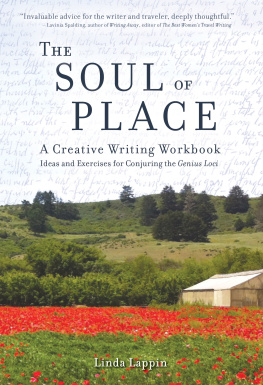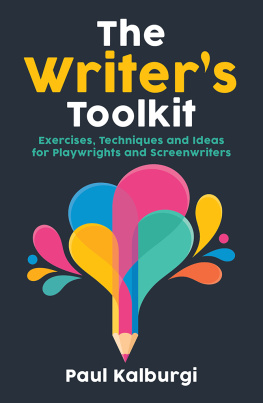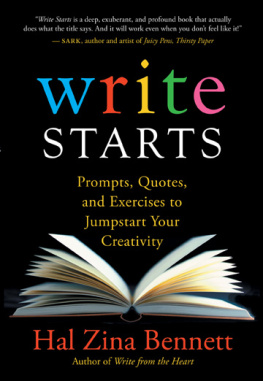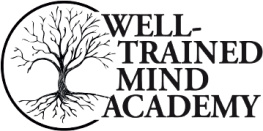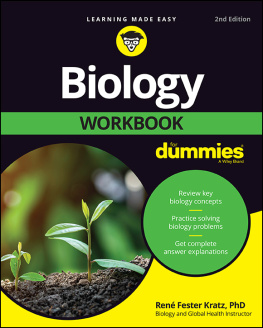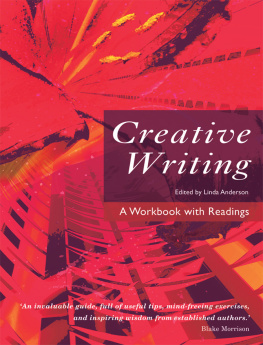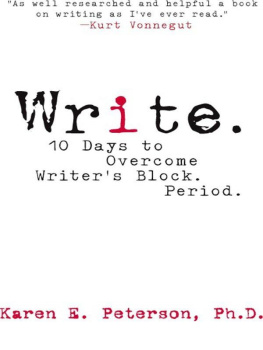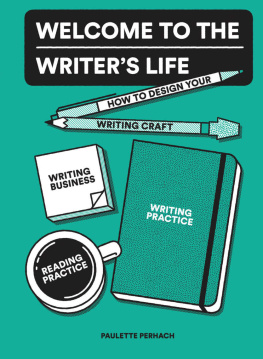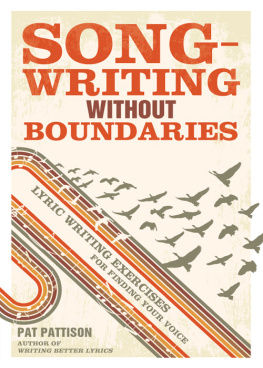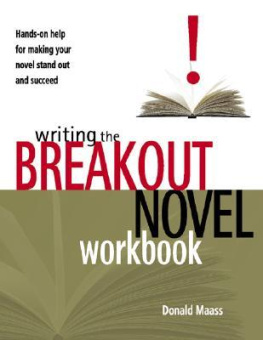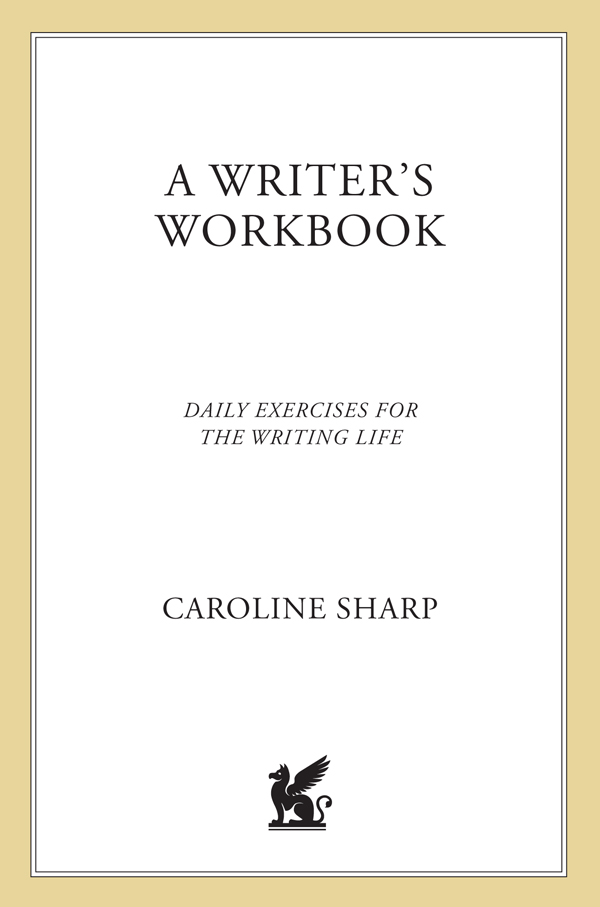Contents
Guide

The author and publisher have provided this e-book to you for your personal use only. You may not make this e-book publicly available in any way. Copyright infringement is against the law. If you believe the copy of this e-book you are reading infringes on the authors copyright, please notify the publisher at: us.macmillanusa.com/piracy.
I dedicate this book with great love and thanks to the man who makes the world safe for memy best friend, my husband, Jamie Curtis.
A Writers Workbook is a project that has been a long time in the making. Along the way, there have been many people without whose help I would have faltered and failed: I would like to thank them by name.
First and foremost, the Workbook never would have seen the light of day without John Hodgman, the best agent a writer could ever hope to have. He believed in this project, and saw its potential, when it was just a thirty-page prototype. His kind and wise hand guided it through the many months of hard work it took to get to publication. Whatever I needed: hand-holding, explaining, encouraging, he was up to the task and always offered 110 percent. I am indebted to him for this project and look forward to many projects to come. Onward and upward.
I owe a great vote of thanks to my editor, Marian Lizzi. I had hoped for someone who would seriously and carefully read my work: What I got was an editor who read and reread and reread each sentence, helping me to push each page into its best possible shape. Marian is a conscientious and accomplished editor. Her enthusiasm and commitment have greatly improved my best effort. I am lucky that we had the chance to work together.
When the prototype of the Workbook was finished, and I was without agent or publisher, I didnt know anyone in the publishing business and was at quite a loss as to what direction to pursue. Two people were very kind to me at this anxious stage: Beverly Sills and Diana Burroughs. Beverly, my surrogate mother, was both inspiring in her advice and helpful with her ideas. Diana is one of the most generous and dependable people I know; if she says she will help you, she does; if she says shell make phone calls, she makes them; and if she makes suggestions, they are appropriate. I am indebted to both of these wonderful women for their time, energy, and initiative.
I always knew I wanted to write, but it took many years before I believed that writing could be my career. There were people along the way who believed in me, and those who did not. I want to thank them allas each of them, in their own way, contributed to this moment. For brevitys sake, here are the key players: Marianne Grose, you were the first adult who took an interest in my writing and your kind ear and gentle encouragement came at a time in my life when it was as necessary as air. Joel Millner, you taught me more about the film business in one year than I learned in three at Columbia University. Brian Helgeland, you were my first mentor; your astounding talent is only matched by the focus, discipline, and dedication that you apply to your craft on a daily basis. You are a standard I will never equal but one to which I will spend a lifetime aspiring. Jeff Gordon, your outlining structure is one I have used and adapted to everything I write. Your sense of humor and generous encouragement of my work will not be forgotten. Rene Apel, Elizabeth Korte, Jed Cohen, Paul Welsh, Ann and Sarah Blanchard, Garrett Sadler, Jennifer Lewis, Pamela Murphy, Elizabeth Gilbert, Sharon Gitelle: You all have been the most charitable, considerate supporters of my writing over the years. A person could not ask for better readers. A gal could not hope for better friends.
Viola Brown, this Workbook would, quite simply, never have been written without your help. You gave me a room of my own in which to work, and quiet hours during which to think.
My aunt, Mary Cronson, has been a consistent champion of my work, always taking an interest, always ready to watch a first edit of a student film and always willing to read a first draft of a story. Your attention is appreciated. My cousin, Caroline Cronson, has been a regular reader, a personal advocate, and a consistent believer in me as a person and a writer. My mother-in-law, Kleanthe Curtis, and my sister-in-law, Madelon Curtis, both read the Workbook in its entirety in each of its many drafts. Their support, enthusiasm, and encouragement is greatly appreciated.
Jennifer Adcock, my faithful assistant. Your relentless interest in this project has helped me more than I can say. You read every word as it came off the printer, proofread every page, and typed up the bibliography. You are an integral part of this project.
Finally, my family. My dear husband, Jamie, and our two children, Margaret and Henry. Waking up every morning knowing that you three people are in the world is a blessing. Thank you for helping me to do something productive with my life.
One fine afternoon I was sitting at home staring at a wall and decidedly not writing when I received a welcome telephone call. (When I am not writing, all telephone calls are welcome, just as when I am writing, all telephone calls are outrageously offensive.) This particular call was from my good friend Joe, himself a writer. As it turned out, Joe was also sitting at home that day, also staring at a wall, and also decidedly not writing.
Let me pose a hypothetical question, he began.
Certainly! I settled in for a delightful episode of procrastination.
What would you rather do? Joe asked. Would you rather wash all your dirty laundry, run it through the drier, fold it, put it all away in your drawers, and then take those same clean clothes out of your drawers, unfold them, and wash them all over again, or would you rather spend the same amount of time writing?
Laundry, I replied without hesitation. I would definitely do the laundry twice.
Joes question brought up one of the more interesting features about writing; namely, how much we hate it. For people who make big claims about loving the written word, authors will do almost anything to avoid actually writing those written words. And for the aspiring writer, the work always seems especially impossible. How to begin? Where to begin? How to motivate? How to find discipline when no encouragement or incentive exists? The obstacles to becoming a writer are seldom a lack of inspiration or talent, but almost always a lack of will. It is very painful to sit down and write. Its hard work. Its not rewarding. Its not good exercise. Its not sexy. Its frankly a lousy way to spend the afternoon. After a few discouraging hours of it, almost anything can look better than a blank page. And as long as the aspiring writer continues to value dirty laundry over blank pages, very few novels will actually get written.
What Caroline Sharp has done here in A Writers Workbook is to offer up the worlds most generous favor to those among us who would write and could write if only we could get down to work. What she has done here is no small accomplishment. It is not easy to teach people anything about the mechanics and the mystery of writing. In fact, there is an eternal debate within the literary world as to whether people can be taught to write at all. While there is a marvelous tradition across the centuries of conservatories where students can study music, or studios where ambitious artists can develop new styles, or dance companies where young ballerinas can train under the great masters, there is no such tutorial history in the art of writing. Writers have always been completely on their own.


